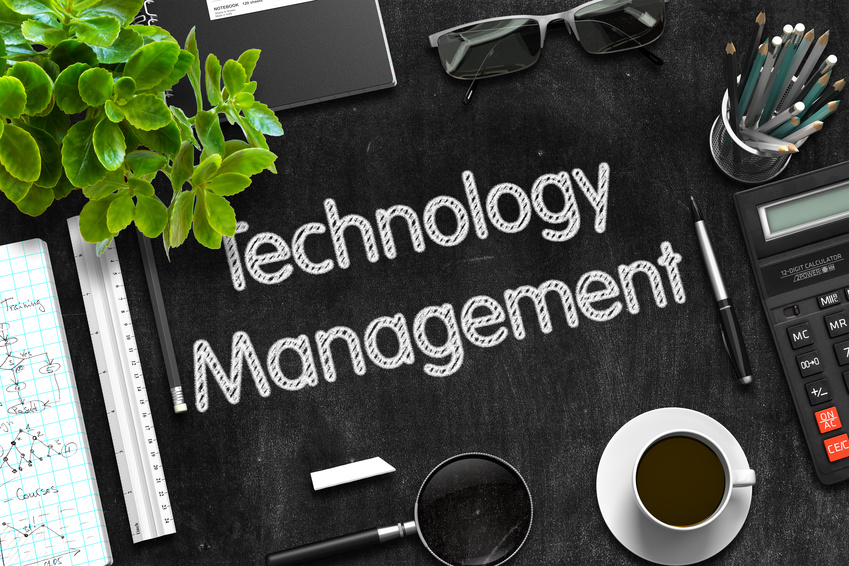
The rapid evolution of technology and changing work dynamics have led to an unprecedented rise in the mobile workforce. The ability to work remotely has become more than just a convenience; it’s necessary for many organizations aiming to attract and retain top talent, increase productivity, and ensure business continuity. However, managing a mobile workforce comes with its unique set of challenges. This is where managed IT services play a crucial role. By providing comprehensive support and leveraging advanced technologies, managed IT services enable businesses to manage and support their remote employees effectively. This blog will explore how managed IT services support mobile workforce management, highlighting key areas such as IT infrastructure, security, communication, and compliance.
The Rise of the Mobile Workforce
Trends and Statistics
The mobile workforce has seen exponential growth over the past decade, driven by several key factors:
- Technological Advancements: Cloud computing, high-speed internet, and mobile devices have made remote work more feasible and efficient.
- Changing Work Preferences: Employees increasingly seek flexibility in their work arrangements, valuing work-life balance and the ability to work from anywhere.
- Global Events: The COVID-19 pandemic accelerated the adoption of remote work, with many businesses implementing long-term or permanent remote work policies.
According to a report by Global Workplace Analytics, 25-30% of the workforce is expected to work from home multiple days a week by the end of 2021. This shift has necessitated new strategies for managing and supporting a mobile workforce.
Challenges of Managing a Mobile Workforce
While the benefits of a mobile workforce are significant, they come with several challenges:
- Communication and Collaboration: Ensuring seamless communication and collaboration among remote employees.
- Security Risks: Protecting sensitive company data and ensuring secure access to IT resources.
- IT Support: Providing timely and effective IT support to remote workers.
- Infrastructure Management: Managing the IT infrastructure required to support a dispersed workforce.
- Compliance and Data Protection: Ensuring compliance with regulations and protecting data privacy.
The Role of Managed IT Services
Managed IT services provide a comprehensive solution to the challenges of managing a mobile workforce. By outsourcing IT functions to specialized providers, businesses can leverage their expertise, resources, and technologies to enhance operational efficiency and security.
Comprehensive IT Support
Help Desk Support
A dedicated help desk provides remote employees with immediate assistance for IT-related issues. Benefits include:
- 24/7 Availability: Round-the-clock support to address IT problems, regardless of time zones.
- Quick Issue Resolution: Prompt resolution of technical issues to minimize downtime and maintain productivity.
- Multichannel Support: Access to support through various channels, such as phone, email, and live chat.
Remote Monitoring and Management (RMM)
RMM tools enable managed IT service providers to monitor and manage IT systems remotely. Benefits include:
- Proactive Issue Detection: Identifying and resolving potential issues before they impact employees.
- Automated Maintenance: Regular system updates and maintenance to ensure optimal performance.
- Device Management: Managing and securing remote devices, including laptops, smartphones, and tablets.
Enhanced Security Measures
Security is a paramount concern for businesses with a mobile workforce. Managed IT services implement robust security measures to protect sensitive data and IT resources.
Endpoint Security
Endpoint security solutions protect remote devices from cyber threats. Key features include:
- Antivirus and Anti-Malware: Protection against malicious software and cyber attacks.
- Encryption: Encrypting data on remote devices to prevent unauthorized access.
- Device Management: Monitoring and managing device security settings and configurations.
Secure Access Solutions
Secure access solutions ensure that remote employees can safely access company resources. Key components include:
- Virtual Private Networks (VPNs): These are secure connections to the company’s network, protecting data transmission from potential interception.
- Multi-Factor Authentication (MFA): Adding an extra layer of security by requiring multiple forms of verification for access.
- Single Sign-On (SSO): Simplifying access to multiple applications with a single set of credentials.
Data Backup and Recovery
Managed IT services ensure that company data is regularly backed up and can be quickly restored in case of data loss. Key aspects include:
- Automated Backups: Regular, automated backups of critical data to prevent data loss.
- Disaster Recovery Plans: Comprehensive plans to restore data and operations during a disaster.
- Cloud-Based Solutions: Leveraging cloud storage for secure and scalable data backup.
Seamless Communication and Collaboration
Effective communication and collaboration are essential for the success of a mobile workforce. Managed IT services provide tools and solutions that facilitate seamless interaction among remote employees.
Unified Communications
Unified communications platforms integrate various communication tools into a single system. Benefits include:
- Integrated Tools: Combining email, instant messaging, video conferencing, and VoIP into one platform.
- Accessibility: Enabling remote employees to access communication tools from any device.
- Collaboration Features: Supporting features like screen sharing, file sharing, and virtual whiteboards.
Collaboration Software
Collaboration software enhances teamwork and productivity among remote employees. Key features include:
- Project Management Tools: Platforms like Asana, Trello, and Monday.com help teams manage tasks, track progress, and meet deadlines.
- Document Sharing and Editing: Tools like Google Workspace and Microsoft 365 enable real-time document collaboration.
- Communication Platforms: Applications like Slack and Microsoft Teams facilitate instant messaging, video calls, and collaboration channels.
IT Infrastructure Management

Managed IT services ensure the IT infrastructure supporting a mobile workforce is robust, scalable, and efficient.
Cloud Computing
Cloud computing solutions provide the flexibility and scalability needed to support remote work. Key benefits include:
- Scalability: Easily scale resources up or down based on demand.
- Cost Efficiency: Pay-as-you-go pricing models reduce upfront capital expenditures.
- Accessibility: Remote access to applications and data from any device with an internet connection.
Virtual Desktops
Virtual desktop infrastructure (VDI) allows employees to access work environments from any device. Benefits include:
- Consistency: Providing a consistent desktop experience across devices.
- Security: Centralized management and security controls reduce the risk of data breaches.
- Flexibility: Enabling employees to work from anywhere with the same level of access and functionality.
Network Management
Managed IT services ensure that network infrastructure is optimized for remote work. Key aspects include:
- Network Security: Implementing firewalls, intrusion detection systems, and secure access controls.
- Bandwidth Management: Ensuring sufficient bandwidth to support remote access and communication tools.
- Reliability: Reducing downtime and ensuring network availability through proactive monitoring and maintenance.
Compliance and Data Protection
Managed IT services help businesses navigate the complexities of compliance and data protection, ensuring that they meet regulatory requirements and protect sensitive information.
Regulatory Compliance
Compliance with GDPR, HIPAA, and CCPA regulations is critical for businesses handling sensitive data. Managed IT services provide:
- Compliance Audits: Regular assessments to ensure compliance with relevant regulations.
- Policy Development: Creating and implementing policies and procedures to meet regulatory requirements.
- Training and Awareness: Educating employees on compliance best practices and data protection measures.
Data Privacy
Protecting the privacy of customer and employee data is essential for maintaining trust and avoiding legal repercussions. Managed IT services offer:
- Data Encryption: Encrypting data at rest and in transit to prevent unauthorized access.
- Access Controls: Implementing role-based access controls to limit access to sensitive information.
- Data Masking: Masking sensitive data in non-production environments to prevent exposure during development and testing.
Business Continuity and Disaster Recovery
Ensuring business continuity and quick recovery from disruptions is crucial for maintaining operations and minimizing losses.
Business Continuity Planning
Managed IT services assist in developing and implementing business continuity plans. Key components include:
- Risk Assessment: Identifying potential risks and vulnerabilities that could impact operations.
- Continuity Strategies: Developing strategies to maintain critical functions during disruptions.
- Testing and Training: Regularly test plans and train employees to respond effectively to incidents.
Disaster Recovery Solutions
Disaster recovery solutions ensure that data and systems can be quickly restored after a disruption. Key aspects include:
- Backup Solutions: Regularly backing up data to secure locations.
- Recovery Point Objectives (RPOs): Defining acceptable data loss limits to guide backup frequency.
- Recovery Time Objectives (RTOs): Establishing acceptable downtime limits to guide recovery efforts.
Managed IT Services in Action
A Financial Services Firm
Background
A financial services firm with a large mobile workforce faced challenges ensuring secure remote access and protecting sensitive client data.
Solution
The firm partnered with a managed IT services provider to implement secure access solutions, including VPNs and MFA. The provider also offered 24/7 help desk support and remote monitoring.
Outcome
The firm significantly reduced security incidents and improved employee productivity. The secure access solutions enabled employees to work remotely without compromising data security.
A Healthcare Organization
Background
A healthcare organization must ensure compliance with HIPAA regulations while supporting a growing mobile workforce of healthcare professionals.
Solution
The organization engaged a managed IT services provider to implement endpoint security solutions, encrypted data storage, and regular compliance audits. The provider also offered training programs for employees on data protection best practices.
Outcome
The organization maintained compliance with HIPAA regulations and improved data security. The training programs increased employee awareness of data protection measures, reducing the risk of data breaches.
A Technology Company
Background
A technology company with a global mobile workforce must enhance communication and collaboration among remote employees.
Solution
The company partnered with a managed IT services provider to implement unified communications and collaboration software. The provider also offered ongoing support and training to maximize the use of these tools.
Outcome
The company experienced improved communication and collaboration, increasing productivity and innovation. The unified communications platform enabled seamless interaction among remote employees, regardless of location.
The rise of the mobile workforce presents businesses with both opportunities and challenges. Managed IT services play a crucial role in addressing these challenges, offering comprehensive support and innovative solutions that empower businesses to manage their remote employees effectively. From enhanced security measures and seamless communication tools to robust IT infrastructure management and compliance support, managed IT services provide the foundation for successful mobile workforce management.
As businesses embrace remote work, managed IT services will become increasingly important. By partnering with specialized providers, businesses can ensure that their mobile workforce remains productive, secure, and well-supported, ultimately driving growth and success in the modern digital landscape.


